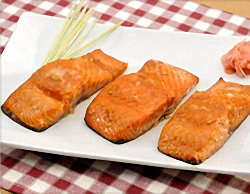- Fruits & Vegetables
- GMOs & Organics?
- Benefits of Grains
- What's a Carb?
- Low Carb Substitutes
- Proteins: Building Blocks
- Protein-Packed Breakfasts
- Meats: Keep it Lean
- Dairy Health Benefits
- Importance of Vitamin D
- Artificial Sweeteners
- Eating a Healthy Diet
- Fiber Sources & Benefits
- How Much Water?
- Example 2 Day Meal Plan
- Mediterranean Diet Pyramid
- Nutrition Facts Label
- Vitamins & Minerals
- U.S. Dietary Guidelines
healthy unsaturated fats
 |
Clear oils |
|
Omega 3 fatty acids The Dietary Guidelines for Americans suggest 8 ounces of seafood per week (less for young children). Additionally, olives and seeds like flaxseeds, pepitas, walnuts and Texas pecans give us a rich supply of these good fats. You may hear about the terms DHA and EPA when learning about the omega 3 fatty acids. DHA stands for docosahexaenoic acid and EPA stands for eicosapentaenoic acid—quite a mouthful—which is why no one ever says the actual name! Suffice to say, these healthy fats are highly unsaturated and there's growing evidence that increasing our intake may:
And there are still more health benefits that are being studied! If you choose to not include fish or these other healthy fat foods in your diet, it may be desirable to add an omega 3 supplement. Ask your doctor, dietitian or pharmacist to help you pick the right one for you. Getting 300 to 600mg of DHA and 400 to 800mg of EPA per day would be a desirable range when supplementing omega 3 fatty acids. |
|
H-E-B Health Care Services Notice of Privacy Practice | Texas State Board of Pharmacy | How to Dispose of Unused Medicines